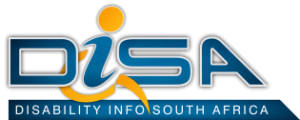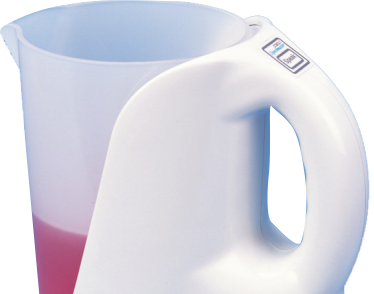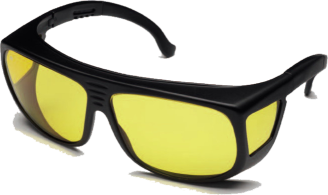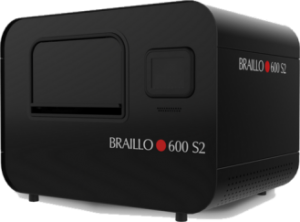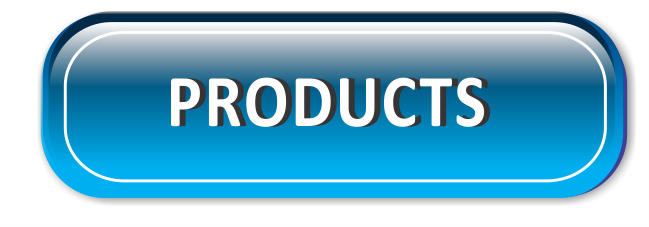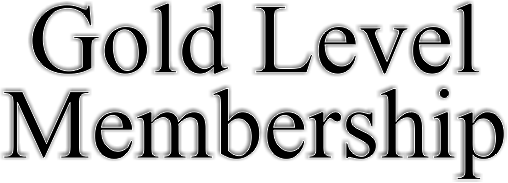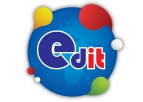Visual Impairment Aids
Contents: To jump to the topic you would like, click on the links below
Introduction
Assistive Devices or Assistive Aids are Equipment which can assist Persons With Disabilities to complete day-to-day activities, perform tasks, play sports, or enjoy hobbies. There are a number of different types of these Assistive Devices which can also assist Persons who are Blind or who have Visual Impairments, some of these are considered "Low Tech" devices and are inexpensive while others are more "High Tech" and can be more expensive to purchase. These Assistive Devices are categorized on the DiSA website according to their use and include Accessories; Computers & Electronic Aids; Household & Cooking Aids; Educational Aids; Glasses & Eye Protection; Mobility Aids; Reading Aids; Sports & Hobby Aids and Writing & Printing Aids.
Some people severely affected by an Intellectual impairments such as Down syndrome also have Hearing and vision disorders occur in more than half of people with . Vision problems occur in 38 to 80%. Between 20 and 50% have strabismus, in which the two eyes do not move together. Cataracts (cloudiness of the lens of the eye) occur in 15%, and may be present at birth. Keratoconus (a thin, cone-shaped cornea) and glaucoma (increased eye pressure) are also more common, as are refractive errors requiring glasses or contacts. Brushfield spots (small white or grayish/brown spots on the outer part of the iris) are present in 38 to 85% of individuals.
Hearing problems are found in 50–90% of children with Down syndrome. This is often the result of otitis media with effusion which occurs in 50–70% and chronic ear infections which occur in 40 to 60%. Ear infections often begin in the first year of life and are partly due to poor eustachian tube function. Excessive ear wax can also cause hearing loss due to obstruction of the outer ear canal. Even a mild degree of hearing loss can have negative consequences for speech, language understanding, and academics. Additionally, it is important to rule out hearing loss as a factor in social and cognitive deterioration. Age-related hearing loss of the sensorineural type occurs at a much earlier age and affects 10–70% of people with Down syndrome.
There are a wide variety of different types of Visual Impairments, so there would also naturally also be a variety of different options and solutions which are available to purchase in South Africa from Organizations & Companies such as Blind SA, Sensory Solutions, Edit Microsystems and The South African Council for the Blind (SANCB). The persons working at these companies and organisations can also advise you on what equipment or accessories would best suit your needs and can also teach persons and offer support to them on how to use the equipment that they supply. To view more information about these Assistive Devices and the Organizations and Companies that provide them, please read the article below or view the menu on the left.
Edit Microsystems: is a leading supplier of educational and corporate technology solutions in Southern Africa. Edit Microsystems aims to find alternative, cutting-edge ways to improve teaching and learning in the education sector and to improve business communication in the corporate sector. Edit Microsystems provides services to educators; education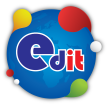 departments; corporate social investors; parents; other government departments and corporate managers. Through on-going support and professional development, Edit Microsystems can help find the right solution for your particular environment.
departments; corporate social investors; parents; other government departments and corporate managers. Through on-going support and professional development, Edit Microsystems can help find the right solution for your particular environment.
Edit Microsystems have various branches around South Africa including in Cape Town. You can contact them on: Tel: 086 111 3973 or email them at: info@editmicro.co.za. You can also visit them at their offices in Cape Town at: 13 Boy De Goede Circle, Table View, Cape Town, 7441, or visit their web site to find out more: www.editmicro.co.za
Blind SA: originally started on 26 October 1946 as the South African Blind Worker’s Organisation to help the blind find meaningful careers. In 2004 it became Blind SA. Blind SA is governed by its members who elect the Head Committee. We insist on self-representation and work and speak from the viewpoint of blind people. We stand for equality, advocating the rights of the blind throughout South Africa. Based in Johannesburg, we serve the blind community at large, we equip blind people with the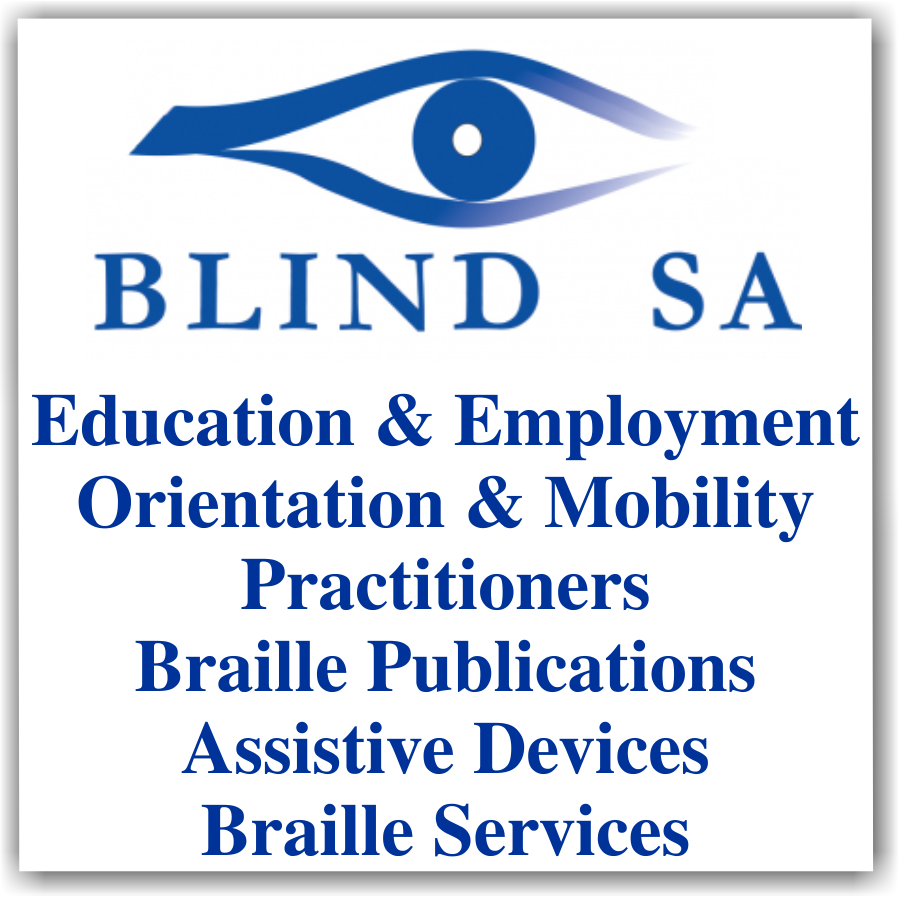 skills they need to fully and independently participate in society. This includes support in living without assistance, getting about, using technology, reading, working and socialising. All this is made possible through advocacy, our Education Committee, Braille Services, Equipment, Mali-Bhala, Orientation & Mobilty Practitioners and our employment programme. It is through this, and the support of our donors, that we connect South African’s who are blind or visually impaired with the world they live in. “Our Purpose is to end the cycle of poverty for Blind South Africans, empowering them with knowledge and information through education, braille and developmental services and to break down barriers, provide opportunities and create answers that improve the quality of life for the blind community so that they can live the life they choose.”
skills they need to fully and independently participate in society. This includes support in living without assistance, getting about, using technology, reading, working and socialising. All this is made possible through advocacy, our Education Committee, Braille Services, Equipment, Mali-Bhala, Orientation & Mobilty Practitioners and our employment programme. It is through this, and the support of our donors, that we connect South African’s who are blind or visually impaired with the world they live in. “Our Purpose is to end the cycle of poverty for Blind South Africans, empowering them with knowledge and information through education, braille and developmental services and to break down barriers, provide opportunities and create answers that improve the quality of life for the blind community so that they can live the life they choose.”
You can Contact Blind SA on: Tel: +27 11 839 1793/4 or Email: ceo@blindsa.org.za, or visit us at: Address: 102 Eighth Avenue, Mayfair, Gauteng, South Africa. Website: www.blindsa.org.za
Sensory Solutions: Sensory Solutions is a South African company with considerable experience in the field of accommodating persons who are visually impaired, blind or partially sighted. We specialise in the field of providing Access Technology solutions for individuals, schools, universities, government departments and more, in order to make the environment more accessible for the visually impaired.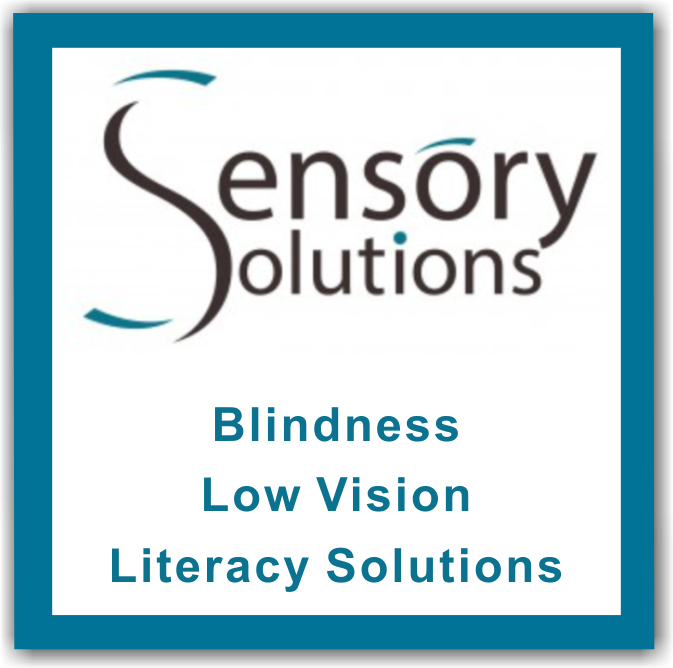
Sensory Solutions is at the forefront of the world’s leading Access Technology products and are in some cases the exclusive distributors. Sensory Solutions is a responsible employer which employs people from previously disadvantaged backgrounds as well as those who are disabled. Part of our mission is to advise individuals and institutions on the best solutions available for particular environments, to design such solutions and finally to implement them on site. As such, we are approved African distributors for a wide range of Access Technology products selected specifically for their suitability to the African environment and our specific situation.
We are proud to be appointed exclusive and preferred dealerships for some of the world’s most leading Access Technology manufacturers. Our mission and ethos revolve around our fellow man, empowering them and making the playing fields level as far as we can make a difference.
Whether you are an individual, institution or company in need of information regarding Access Technology, we are ready to assist you. Please feel free to contact us at our Head Office on: +27 12 664 7704 or at 226 Kruger Avenue, Lyttelton Manor, Centurion, 0157. Alternatively you can visit our Cape Town Branch office at: 4 Oxford Street, Durbanville, Cape Town, 7550, or contact us at: Tel: +27 21 975 3558, or Email: anthony@sensorysolutions.co.za or via Fax: +27 12 664 7706, or visit their website at: www.sensorysolutions.co.za
Accessories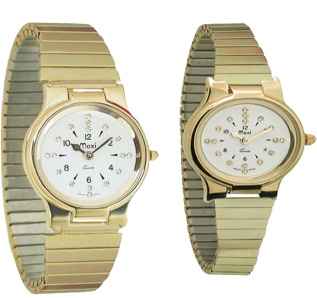
Many Persons who are Blind or have Visual Impairments require Accessories to assist them on a daily basis. Accessories are those small Assistive Devices that are used around the house by Persons With Visual Impairments to become more independent. They include products such as Automatic Pill Reminder, Pill Splitters & Pill Organizers; Braille or Talking Tape Measures; Money Template & Coin Selectors; Pen Friends; Talking Calculators; Signature Guides; Braille or Talking Watches & Clocks, etc. These products often include braille markings on them to make them easier to use by Persons who are Blind. Below is a list of some of this equipment, which is available in South Africa from organizations and companies such as Edit Microsystems, Sensory Solutions and The South African Council for the Blind (SANCB).
To find out more about these Accessories & others, please click the "Accessories " button on the left or on the link below.
Computers & Electronic Aids
Computers & Electronic Aids are the Assistive Devices that are used by Persons who are Blind or have a Visual Impairment, which enables them to be able to operate equipment such as Computers, Cellphones, Tablets, etc. These Computers & Electronic Devices are extremely useful equipment for persons who are Blind or have a Visual Impairment. They are important tools of integration and can be used for a number of purposes including: Work, Reading, Research, Entertainment and Socializing, to mention just a few. These Computer & Electronic Aids are therefore extremely powerful tools for the Blind, or Visually Impaired and include products such as:
The availability of this equipment is increasing thanks to Organizations and Companies such as Edit Microsystems, Sensory Solutions, Blind SA and The South African Council for the Blind (SANCB) who have made concerted efforts to make sure that this equipment is available for the Blind in South Africa.
To find out more about these Computers & Electronic Aids, click the "Computer & Electronic Aids" button on the left or on the link below.
Household & Cooking Aids
Household and Cooking Aids is any device that helps Persons who are Blind or have Visual Impairments, to be able to do household chores and cooking without assistance, thus giving that person more independents and improving their self esteem. There are a variety of these Assistive Devices, which range from simple adaptions such as iron guards, which helps protect the person ironing from getting burned, to more advanced Equipment such as talking ovens. In the page below we will introduce & discuss a wide variety of these different types of Household and Cooking Aids that are available in South Africa, which are sold by companies such as Edit Microsystems and The South African Council for the Blind (SANCB).
To find out more about this equipment, please click the "Household & Cooking Aids " button on the left or on the link below.
Educational Aids
Many students have some type of visual problem, but the great majority of these cases can be resolved with Glasses or contact lenses. These students need no special education services, however some students with more serious Visual Impairments need extra assistance. A student with a Visual Impairment can succeed in school if given the right support and accommodations and the teacher should understand these implications of Visual Impairments for learning and the modifications and accommodations that are essential for the student’s success. Educators often classify students in terms of classroom functioning, students who are Blind or Visually Impaired are typically classified as moderate, severe, and profound. These classifications refer to the extent to which the student needs special education adaptations to learn. There are a wide range of assistive technology devices that are available for students who are Blind or Visually Impaired. Some are considered "low tech" and inexpensive while others are more "high tech" and can be more expensive. These Educational Aids are available throughout South Africa and can be purchased from various Organizations & Companies such as Edit Microsystems. Many of these Organizations & Companies can also advise you on what Educational Aids would best suit your needs and supply the training you need.
To find out more about this Equipment, please click the "Educational Aids" button on the left or the link below.
Glasses & Eye Protection
There are many people of all ages that have some type of Visual Impairment that can be resolved with the aid of Glasses which are used for vision correction, such as Reading Glasses and Glasses used for nearsightedness. Contact lenses can also be used for this purpose. Glasses consist of glass or hard plastic lenses mounted in a frame that holds them in front of a person's eyes. In the past, these lenses were made exclusively of glass, but as technology advances, so did lenses and today most lenses are made of high-tech plastics which are lighter and don’t break or scratch as easily as glass. Glasses are typically used for vision correction, but there are also a wide variety of different types of other Glasses used for Sport, Entertainment (3D Glasses), Work or as a fashion accessory, such as Sunglasses. The page below will deal with the types of Glasses which can assist and protect the eyes of Persons who are Blind or have serious Visual Impairments. Many of these products are available in South Africa and are sold by Organizations and Companies such as Edit Microsystems.
To find out more about this equipment, please click the "Glasses & Eye Protection " button on the left or the link below.
Mobility Aids
There are a range of assistive devices that have been developed and are available for persons who are Blind or Visually Impaired, so that they can be more mobile and independent. These assistive devices are known as Mobility Aids and can range in price and include both "low tech" inexpensive devices such as White Canes, as well as more expensive "high tech" equipment, such as Smart Glasses. Mobility Aids however, don't only include equipment, but can also include Guide Animals and Accessible Features, such as Tactile Paving. Orientation Techniques can also be taught & used to assist persons who are Blind or Visually Impaired, so that they can be more mobile. These Orientation Techniques & the use of White Canes or Guide Dogs + Accessible Features which the Government has introduced, can help persons who are Blind, to be able to travel around & navigate successfully from point A to point B. Some persons who are Blind use a wide range of these Mobility Aids, while others only require one or two of them to be able to travel independently.
There are various Organizations & Companies such as Edit Microsystems and The South African Council for the Blind (SANCB), which offer a wide variety of these Services and Mobility Aids. Many of these Organizations & Companies can also advise you on what equipment would best suit your needs and how to use the equipment that they supply.
To find out more about these Mobility Aids & Techniques that can assist you, please click the "Mobility Aids " button on the left or the link below.
Reading Aids
Reading is not only essential for personal independence, but also in Education and as a hobby, it provides many benefits and is still possible for persons who are Blind or have Visual Impairments, thanks to Assistive Devices called Reading Aids. There are a wide variety of different types of Visual Impairments and are therefore also a variety of different types of Reading Aids available. Many persons of all ages have some type of Visual Impairment which can be resolved with the aid of Glasses, such as Reading Glasses, but there are also a variety of other types of Reading Aids, including Large Print Books, Magnifiers and Computer Magnifiers, which can be used to zoom in to make the writing and pictures larger for persons with Visually Impairments who can still read. Computer Software is also available that can read the content on the computer back to the user, while other Computer Aids can assist persons to be able to operate their computer or electronic devices. Braille Books and other equipment are also available for Persons who are Blind and able to read braille, while Audio Books and Audio Book Players can be used by Persons who just wish to enjoy listening to the content of a book.
Persons with Visual Impairments or who are Blind who wish to remain independent, will need to find a way to read comfortably by finding a Reading Aid that will suite them. This is one of the most difficult challenges for Persons with Visual Impairments or who are Blind, but thankfully Reading Aids are available throughout South Africa and are sold by Organizations & Companies such as Edit Microsystems, who offer a wide variety of solutions and can also advise you on what equipment would best suit your needs. Some of these companies such as Edit Microsystems , Sensory Solutions and The South African Council for the Blind (SANCB). can also teach persons and offer support to them on how to best use the equipment that they supply.
Employers, Teachers and Lecturers should make Reading Aids available to persons with Visual Impairments, so that they will not be disadvantaged in School or at their job.
To view more information about these Reading aids that are available in South Africa as well as the companies that supply them, click the link below or view the menu on the left.
Sports & Hobby Aids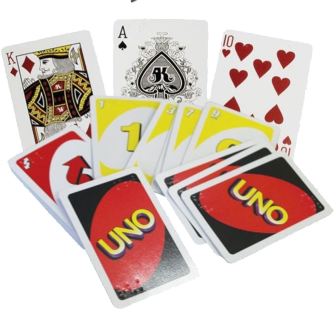
Persons who are Blind or have Visual Impairments can still take part and benefit from activities like Sports and Hobbies. Sports & Hobbies not only help prevent depression, but can help you meet people and also remove some of the stigma associated with having a disability. Many Sportsman with Visual Impairments inspire others and help society learn about persons with disabilities. Some Sports such as Swimming, Judo and Athletics don't require adapted equipment but some Sports and Hobbies require the assistance of adapted Sports Equipment/Aids so that Persons with Visual Impairments can take part. There are a variety of different types of these Sports & Hobby Aids which are available throughout South Africa and are sold by Organizations & Companies such as Edit Microsystems and The South African Council for the Blind (SANCB).
To find out more about this equipment that can assist you, please click the "Sports & Hobby Aids " button on the left or the link below.
Writing & Printing Aids
Literacy is a key to personal independence and the access to information for Persons who are Blind. Reading and Writing can only be attained through Braille, making it key to literacy. Thanks to the availability of a variety of Printing Aids, Braille literature and printed materials are more readily available through Schools, Universities, Libraries, Organizations and Companies. Writing Aids, and various techniques have also been developed to assist persons who have Visual Impairments, so that they are able to Write or Sign. These Writing Aids can include simple assistive devices such as writing or signature guides, Slate and Stylus, Paper with raised or bold lines or Special Pens. The use of slant boards, and different types of magnification may also be helpful for those who are writing print, while environmental adaptations include increasing contrast and lighting. Equipment such as Tape Recorders can be used to capture meetings, lectures or assist in composition of papers, while voice synthesizers can read each page back to the user. Computers, Computer Aids and Computer Software have also been developed to assist persons who are Blind or have Visual Impairments and Employers, Teachers and Lecturers should make this type of equipment available to persons with Visual Impairments, so that they will not be disadvantaged in School or at their job. These and other Writing & Printing Aids are readily available in South Africa from organizations and companies such as Edit Microsystems, Sensory Solutions and The South African Council for the Blind (SANCB). .
Click on the link below or on the Writing & Printing Aids link on the top left of the page to find out more about Writing & Printing Aids and the different Companies in South Africa that supply them.
To view more information about these Assistive Devices and others, view the menu on the left or feel free to Contact Us if you have any questions about the products and Services listed on this page and we will point you in the right direction.
